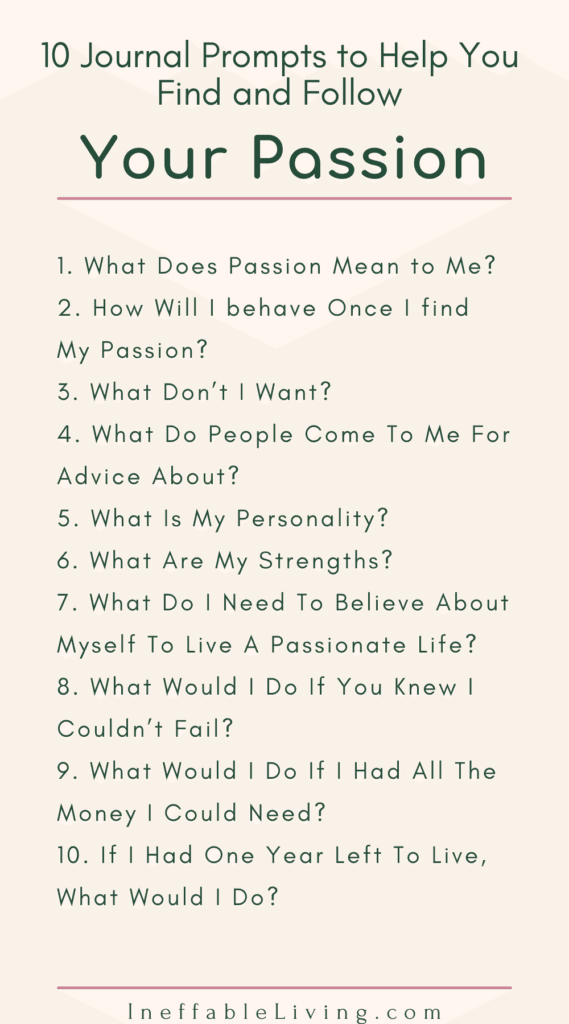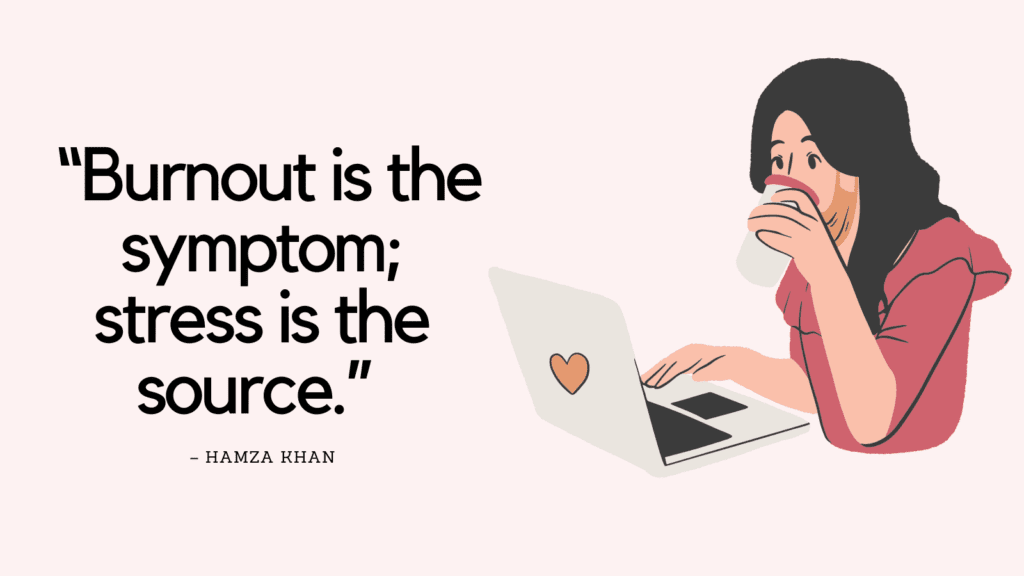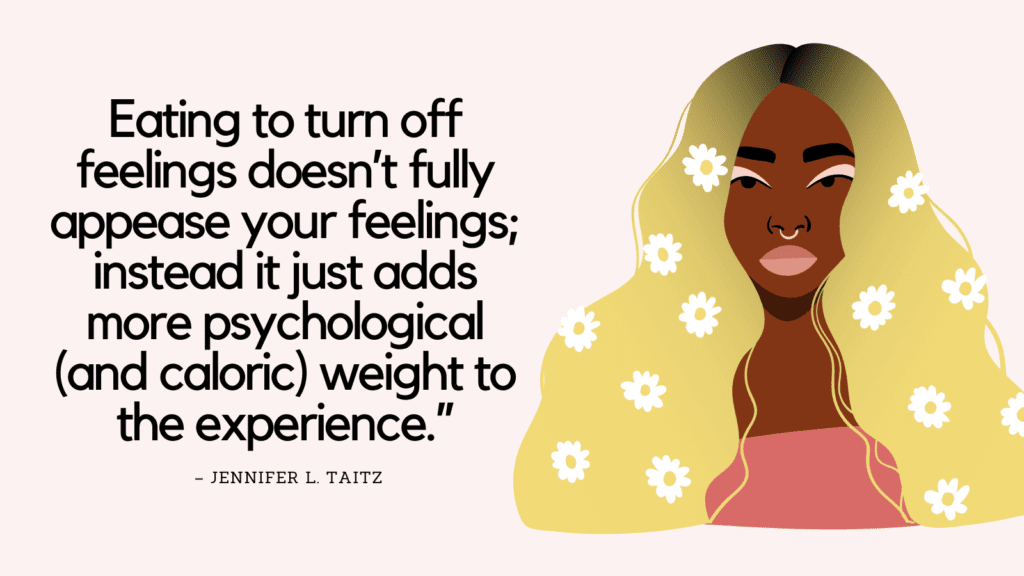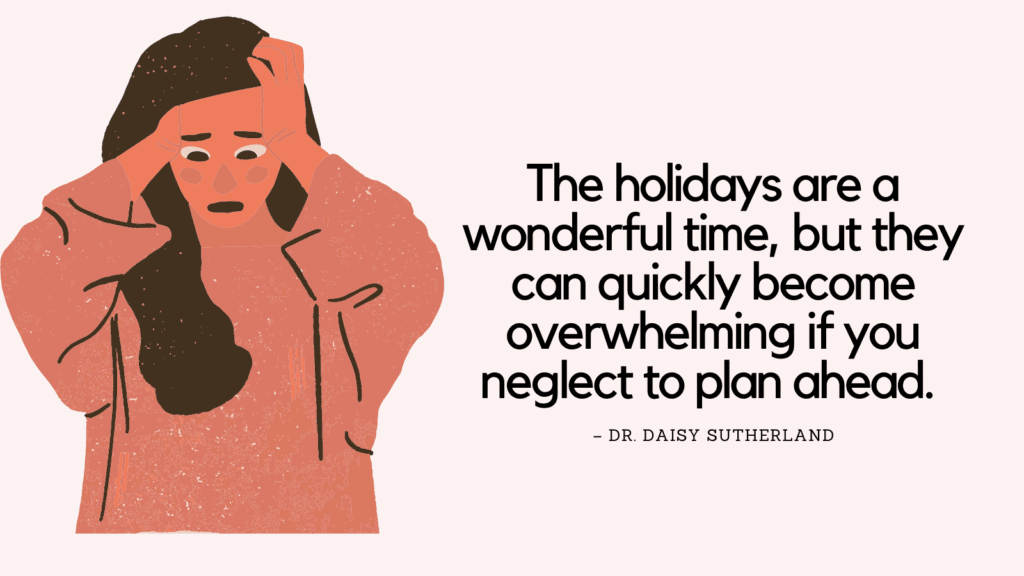This post contains some of the best work burnout quotes along with helpful tips on preventing burnout in the workplace.
What is Burnout?
When left unchecked, excessive or prolonged stress can result in burnout – a state of emotional, mental, and physical exhaustion can affect all areas of a person’s life, not just work.
Burnout is characterized by three dimensions:
1. Energy depletion or exhaustion;
2. Increased mental distance from one’s work, or increased negativity or cynicism related to one’s work;
3. Reduced professional efficacy.
Feeling tired all the time, lacking enthusiasm about your work, feeling cynical and disengaged from what you do, are all signs of burnout which is becoming more and more common as our lives became busier and more demanding.
However, burnout isn’t simply a result of working too hard for too long.
“Burnout results when the balance of deadlines, demands, working hours, and other stressors outstrips rewards, recognition, and relaxation,” according to Alexandra Michel, a science writer at the Association for Psychological Science.
While feeling always tired and lacking engagement in your work can decrease your productivity, the risks of burnout run deeper than that.
In fact, studies have shown that burnout is also associated with obesity, insomnia, and anxiety.
While causation hasn’t been proven, research also shows a link between overworking and a higher risk of both stroke and coronary heart disease.
Why Is Mental Health At Work Important?
The World Health Organization (WHO) defines mental health as: ‘A state of well-being in which every individual realizes his or her own potential, can cope with the normal stresses of life, can work productively and fruitfully and is able to make a contribution to her or his community’.
Our mental health affects the way we think, feel, and behave towards ourselves and others. It also affects our productivity and work quality. (*)
2 Key Components For Wellbeing
Most people measure their wellbeing by their level of happiness. But there is more to wellbeing than the positive feelings of happiness.
The World Health Organization (WHO) recognizes that wellbeing also involves resilience: the ability to manage problems and challenges as well as bounce back, and recover from them. (*)
In other words, wellbeing requires both, the ability to enjoy life and having the resources to manage life’s ups and downs without feeling overly stressed.
Workplace and Stress
Issues such as a poor working environment, unrealistic deadlines, poor communication, and interpersonal relationships quality, too much responsibility and workload, and a lack of management support can increase stress for people at work.
Not to mention that most of us will also have to deal with stressful situations outside of work.
Stress represents any challenge to the balance (also referred to as homeostasis) of the body, be it physical, psychological, emotional, real, or even imagined.
A challenge can be anything from weather changes to traumatizing experiences, pollution, sleep deprivation, feelings of fatigue, eating processed food, or deadlines.
Stressors can also be hidden, such as feelings of low self-esteem or a weak immune system.
Although stress isn’t a disorder, the mental health charity Mind argues that ‘it’s closely linked to your mental health in two important ways:
Stress can cause mental health problems, and make existing problems worse. For example, if you often struggle to manage feelings of stress, you might develop a mental health problem like anxiety or depression.
Mental health problems can cause stress. You might find coping with the day-to-day symptoms of your mental health problem, as well as potentially needing to manage medication, healthcare appointments or treatments, can become extra sources of stress.
This can start to feel like a vicious circle, and it might be hard to see where stress ends and your mental health problem begins.’
Stress is responsible for emotional and physical problems such as experiencing racing thoughts that won’t switch off, inability to concentrate, indecisiveness, irritability, impatience, aggressiveness, muscle tension, headaches, chest pains, indigestion or heartburn, constipation or diarrhea, sleep problems, etc. (*)
Related: Definitive Guide to Relieve Stress Instantly and Lead a Peaceful Life
Work Burnout Quotes
1. “Burnout does not stem from any failing on your part alone and does not suggest that you are at fault or to blame for where you find yourself today. To be sure, you may have (probably unconsciously) contributed to getting yourself into this “mess” of burnout, but you didn’t do it singlehandedly.” – Eva Selhub, MD
2. “Burnout is a multi-headed beast that poses an array of wicked problems.” – Hamza Khan
3. “Burnout is a worthy adversary in the struggle to becoming more resilient and joyful, and this means we need to understand and appreciate that adversary.” – Eva Selhub, MD
4. “Burnout is nature’s way of telling you you’ve been going through the motions, but your soul has departed; you’re a zombie, a member of the walking dead, a sleepwalker. False optimism is like administering stimulants to an exhausted nervous system.” – Sam Keen
Related: Top 14 CBT Exercise For Anger Management (+FREE Anger Worksheets)
5. “Burnout is not exclusive to work. It is a stress-related issue, and you can therefore arrive at burnout as a result of the cumulative effect of stress from too many obligations in any area of your life” – Eva Selhub, MD
6. “Burnout is what happens when your body tells you that something is wrong.” – Hamza Khan
7. “Burnout isn’t a sudden-onset illness. It cannot and does not develop overnight. It develops over time.” – Hamza Khan
8. “Burnout isn’t just a problem to be solved; more importantly, it’s a relationship to be addressed. Like it or not, you’re in a relationship with your burnout.” – Eva Selhub, MD
9. “Burnout often manifests with anxiety and depression symptoms, including: fatigue, lack of purpose, detachment, a cynical outlook, and emotional numbness. Not to mention physical symptoms like headaches, trouble sleeping, and lowered immunity.” – Caroline Dooner
10. “Burnout, according to Emily Bremner, Director of Development at New Leaf Foundation, is the body’s way of saying stop—“stop treating me unkindly, stop putting me under stress, and start taking better care of me.”” – Hamza Khan
11. “Even just monotonous and mundane work can lead to burnout.” – Caroline Dooner
12. “For people who are prone to burnout, this ideal image of oneself isn’t simply a goal they will stop at once they have reached it. They must also go above and beyond that image. Even if their expectations begin to seem overwhelming or unrealistic, they push aside any doubt and surge forward, chasing after an increasingly unattainable goal.” – Hamza Khan
Related: Top 19 Emotional Intelligence Activities (To Improve Low Emotional Intelligence)
13. “For those who’ve experienced it, there can be no doubt that the effects of burnout are life-changing, and recovery takes time.” – Harriet Griffey
14. “Furthermore, the fatigue and exhaustion of burnout may make you less likely to seek out and pursue new career opportunities, especially if you are doubting your own abilities or capacity to learn something new.” – Eva Selhub, MD
15. “If you are experiencing burnout, you are not alone, and the causes are much bigger than any individual.” – Eva Selhub, MD
16. “If you’re not careful, stress can—and often will—lead to burnout.” – Hamza Khan
17. “It may be both a bit alarming on the one hand and comforting on the other to know that this experience of burnout is actually a fairly common human experience, especially in today’s world.” – Eva Selhub, MD
18. “Know that there is no quick fix to burnout.” – Eva Selhub, MD
19. “Know that whatever the feelings you are experiencing in your body, the emotions that plague you, or the thoughts in your head, burnout is not a reflection on your failings as a person, but a very common human experience that arises from your most basic instinct to survive under threatening or overwhelming circumstances.” – Eva Selhub, MD
Related: Top 10 Tips On How To Practice Stoicism (For a Good, Happy Life)
20. “Loneliness is one of many factors at the root of burnout syndrome in today’s millennial generation.” – Hamza Khan
21. “Looking beyond the emotional and psychological impact of your experience of burnout on those around you, your low energy, impaired concentration, lack of motivation, and bad mood all likely contribute to reduced performance in various ways.” – Eva Selhub, MD
22. “Not surprisingly, burnout is often associated with depression and/or anxiety.” – Eva Selhub, MD
23. “Now, a big part of beating burnout is knowing your tells and having self-awareness, an understanding of your behaviour, and knowledge of how it changes in stressful situations.” – Hamza Khan
24. “Rest is the only way to heal burnout. The only way! In order to heal, in order to be with yourself, in order to gather strength, we need rest.” – Caroline Dooner
25. “Statistics about prevalence of burnout do nothing to change the fact that you are experiencing it, but understanding how old and widespread the phenomenon is can definitely help you feel less alone and perhaps more hopeful about the possibility of a way out of it.” – Eva Selhub, MD
26. “Stress plays a role in burnout, even though stress and burnout are two different things. One way to think about the relationship between the two is to think of burnout as a potential result of chronic (meaning persisting for a long time) stress that isn’t managed.” – Eva Selhub, MD
27. “The biggest challenge that arises for people struggling with burnout is that all the best, most well-meaning advice revolves around getting away, taking time off, and removing yourself from your work and responsibilities. As nice as this may be (and I heartily endorse it when you can make it happen), what if you can’t get away to get a massage or take a weekend at the beach? The answer is that you may want to redefine what “time away” means.” – Eva Selhub, MD
Related: How To Live A Peaceful Life? 101 Timeless Principles to Find Peace Within Yourself
28. “The experience of burnout can feel like a very dark place. When you are feeling depleted, self-critical, unable to catch up and stretched beyond your capacity to cope, there is a deep-seated phenomenon that seems to happen for most people.” – Eva Selhub, MD
29. “The only way out of burnout is through it. You can’t go around it; you can’t run away from it; and you can’t surgically remove it like an inflamed appendix.” – Eva Selhub, MD
30. “The role that technology is playing in growing stress levels and burnout in millennials cannot be discounted. It contributes to our stress by tethering us to our work.” – Hamza Khan
31. “When you are feeling burned out, depleted, utterly alone, and isolated, you are actually sharing the experience of burnout with about half of the working world, if a recent study by Indeed (the giant job aggregator website) is to be believed.” – Eva Selhub, MD
32. “You don’t have to quit your life to heal your burnout. We have to focus on what we do have control over: our mentality around rest. We need to declutter our guilt and unexamined shoulds.” – Caroline Dooner
33. “When it comes to burnout, studies have confirmed that there’s a correlation between high levels of emotional intelligence and lower instances of burnout.” – Suzi McAlpine
34. “We also have such a poor cultural understanding of burnout, both how it manifests and how common it is. You don’t need to work eighty hours a week to get burnt out. You can get burnt out from a standard forty-hour workweek, and you don’t even have to be “overworking” to get burnt out.” – Caroline Dooner
35. “What researchers do understand more clearly is that a history of problems with depression or anxiety probably sets you up to be more vulnerable to experiencing burnout under the right conditions.” – Eva Selhub, MD
Related: How To Build Resilience At Work? Top 19 Ways To Build Resilience And Prevent Burnout
36. “Trying to be a perfectionist brings increased stress and hinders performance.” – T. Whitmore
37. “Believing that you must do something to perfection is a recipe for stress, and you’ll associate that stress with the task and thus condition yourself to avoid it.” – Steve Pavlina
38. “Mindfulness creates centered awareness. When you do one thing at a time, you’re guaranteed excellent results. If you do too many things simultaneously, it messes up your neural circuits. Focus on one thing at a time.” – Deepak Chopra
39. “One of the best ways to reduce stress is to accept the things that you cannot control.” – M. P. Neary
40. “Much of the stress that people feel doesn’t come from having too much to do. It comes from not finishing what they’ve started.” – David Allen
41. “When money becomes your purpose, stress, and depression become your path.” – Prabakaran Thirumalai
42. “Stress can actually help you focus better and can be positive. Having small amounts of stress can stimulate you to think. Being able to manage your stress is key.” – Frank Long
43. “The key is not to prioritize what’s on your schedule, but to schedule your priorities.” – Stephen Covey
44. “Remember that stress doesn’t come from what’s going on in your life. It comes from your thoughts about what’s going on in your life.” – Andrew Bernstein

Top 9 Tips On Preventing Burnout In The Workplace
In order to overcome the effects of burnout, psychologists usually suggest finding ways to make your workload more manageable (delegate more, say “no” more often, eliminate time wasters and distractions…).
But burnout isn’t only about workload stress. It’s workload stress exceeding the rewards of that workload.
#1. Determine How Long The Workday Needs To Be
Although success is being linked with little work and more leisure time, in real life, people with the highest status jobs and highest salaries are more likely to be overworked.
Overworking can become counterproductive and cause burnout. In fact, researches have shown that working more hours can only increase your productivity to a point before it diminishes.
This point seems to be around 49 hours per week. Beyond this point, you won’t get more done and you’ll put your health at risk.
So working more than 49 hours per week isn’t likely going to get you ahead in your career or impress your boss, or even help you keep up with your never-ending to-do list.
#2. Avoid Multitasking
Multitasking is nothing but fast task switching. In fact, doing more than one activity that requires brainpower such as writing, reading, conversing… at the same time is impossible.
David Meyer, professor of psychology at the University of Michigan in Ann Arbor says “as long as you’re performing complicated tasks that require the same parts of the brain, and you need to devote all that capacity for these tasks, there just aren’t going to be resources available to add anything more.”
While attempting to multitask isn’t uncommon, it can lead to some bad results. When you switch between tasks that require effort and concentration you either are going to have to slow down on one of the tasks or you’re going to start making mistakes.
So instead of wasting our energy and working at lower speed and accuracy on more than one task, we need to prioritize our work and focus on one task at a time.
#3. Craft The Perfect Morning Routine
Most successful people in history have relied on morning routine to help them start their day on the right foot and increase their productivity throughout the day.
Hal Elrod, in his book The Miracle Morning, has written six simple habits to start the day right.
It’s called SAVERS. An acronym that stands for:
S — — Silence. Start your day with at least 5 minutes of meditation. Focus on your breathing and let go of any thoughts that might come to your mind.
A — — Affirmations. Write down on paper your ideal life in the present tense. If you want to become fit, you can write down “I take care of my health and exercise daily.” Then read your affirmation aloud with emotion and intent.
V — — Visualization. Close your eyes and think about your ideal life as if you were living it. Do it for 5 minutes.
E — — Exercise. Even an exercise as simple as stretching can be enough to make you alert and improve your concentration level.
R — — Reading. Reading something inspirational in the morning will give you something to dwell on.
S — — Scribing. You can write down your to-do list for the day, things you’re grateful for, and any thought that comes into your mind.
Related: Morning Routines: The Definitive Guide to Design Your Perfect Morning Routine
#4. Protect Your Time
Many of us lose so much time of our meaningful work because we have a hard time turning down requests from colleagues or resisting long coffee breaks and social media/news checking.
Some find themselves stuck in endless meetings they feel they have to attend even though it doesn’t seem to add anything to their work.
One way to protect your time is by scheduling deep work sessions in advance.
Cal Newport author of Deep Work, deliberately prioritizes his most important work over emails, meetings with colleagues, or spontaneous opportunities. He schedules blocks of time for his deep work in advance and fits other demands around those appointments.
#5. Constrain Your Time or Your Tasks
Depending on the type of tasks you’re working on, you can either constrain your time or constrain the tasks.
For tasks that aren’t well-defined, or not easily broken down into sub-tasks you can make progress on these tasks by setting a time constraint to work on them, like planning to work for two hours first thing in the morning.
For tasks that are well-defined, you can constrain them by setting a specific set of tasks to complete and work on as long as it takes to get them done without setting a specific period of time to work for.
#6. Take Restful Breaks
Not taking enough restful breaks can affect our productivity levels and even lead to burnout. In fact, our brains are built to detect change. When things are consistent over time, our brains stop paying attention to it.
So when you’re working on tasks that take a long time, eventually you stop paying attention to it. This is why taking a break is found to improve focus and productivity in general.
In order to benefits from your breaks, make sure your switch off from work, including not responding to emails or updating your to-do list.
Spending time in nature can not only improve your focus but also reduce stress, as well as improve your mood and sleep.
Related: 35 Easy Ways to Relax: Beat Stress and Anxiety in as Little as Five Minutes
#7. Increase Your Productivity For The Last Hour Of Your Workday
The way you spend the last hour of your workday can make a huge difference in how productive you are the next morning and the rest of the day.
Creating productive habits for the last hour of your workday can help you start the next day in a good mood.
The following are some examples of habits you can develop:
1. Plan tomorrow’s to-do list
Having your to-do list prewritten for the next day means that you’ll know exactly what to do when you get into your desk instead of simply acting on whatever draws your attention.
When planning your to-do list for the next day, it’s important to look at your calendar and take into consideration the time that will be taken by meetings and other plans.
2. Leave something unfinished
Even with a prewritten to-do list, you might find yourself procrastinating on going through it. This is why leaving something unfinished in your last hour of the day can help you start working as soon as you get into your desk.
This is called Zeigarnik effect.
When there’s something unfinished, your brain wants closure. This can make you eager to finish whatever is left unfinished first thing in the morning.
#8. Find Ways To Relax And Enjoy Life Again
1. Practice Self-care
Self-care should be a way of life, not just practiced when you’re burned out.
Eating well, staying hydrated, exercising regularly, and getting plenty of quality sleep are simple yet effective ways in preventing burnout.
Find out what activities are most relaxing for you and make time to do more of them.
Related: Take Care of Yourself: (26 Simple Self-Care Practices for a Healthy Mind, Body & Soul)
2. Do What You Enjoy
Burnout is caused by a feeling of resentment toward your job and not being able to do what you love or what is important to you regularly.
Yahoo! CEO Marissa Mayer says that people “will become resentful if work makes them miss things that are really important to them.”
This is why it’s important to know what you care about most and make more time to do it. If there’s a particular activity that you enjoy in your work, make time to do more of it. If, on the other hand, your activity of pleasure is not work-related like playing an instrument, make time to do it regularly.
It may seem like a counterintuitive idea, given the hectic schedule you might have, but doing more of what you enjoy can stave off burnout and rejuvenate your energy.

#9. Make Your Work More Meaningful
We seem to push ourselves for higher levels of productivity and higher output without asking what kind of output is meaningful and whether we’re spending our energy effectively.
First, you need to understand what makes work meaningful.
A meaningful life is about helping and connecting with other people, and contributing to something beyond yourself, like others, nature, or your work. Meaningfulness in our work improves our performance and job satisfaction.
Moreover, meaningful work and life produce more positive feelings on the long-haul which makes the effort worth it.
However, meaningfulness is rarely experienced in the moment, but rather in retrospect and on reflection when people are able to see the connection between their achievements and its impact.
How to make your work more meaningful?
If you want to increase your feelings of meaningfulness at your work you can either look for a new job that offers more meaning for you, or you can adjust your current job.
The latter method is called “job crafting,” a term coined by psychologists Amy Wrzesniewski and Jane E. Dutton in 2001. The aim is to adjust your job description in a way that will create more meaning in your life and turn your current job into the job your love. You can do this through three main steps:
1. Task crafting. In this part, you adjust your role by picking up or dropping specific tasks. You can usually do this once you’ve proven yourself to your supervisor. You might even have to learn a new skill or expand your abilities.
2. Relational crafting. In this part, you, purposely, work on creating or deepening relationships at work.
3. Cognitive crafting. In this final part, you work on thinking differently about what you do and why it’s important.
With the ever-increasing demands of our work, we struggle to get things done. We turn to failed methods such as working longer hours, skipping breaks, and multitasking. However, these approaches often lead to burnout.
By managing your time better and doing more of your meaningful work, you can get more done without hindering your health




